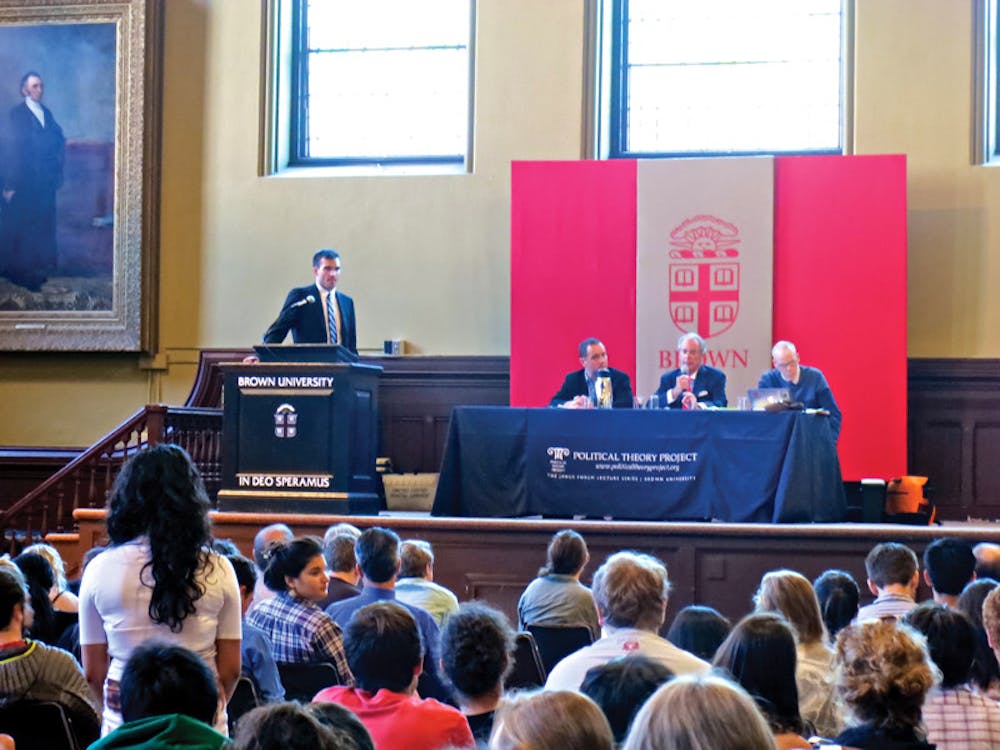The tension was palpable in Sayles Hall yesterday as coal divestment advocates Bill McKibben P’16 and Christian Parenti locked horns with former Duke Energy CEO James Rogers in a Janus Forum event held just weeks before the Corporation is due to vote on coal divestment.
McKibben, founder of 350.org, a site that advocates divestment from fossil fuels, called the need to divest “morally urgent,” adding that fossil fuel companies “want the old world to hang on longer … far longer than science tells us it can.”
The coal industry “devastates human health and the environment” and is a “huge contributor to climate change,” according to a statement on student group Brown Divest Coal’s website.
Rogers argued for a long-term approach to refining the coal business, explaining that his company “is making the transition” to cleaner energy but that it “can’t do this overnight.” He likened the development of environmentally friendly energy sources to the construction of the Notre Dame Cathedral — though it took generations of workers to build the cathedral and many of those who worked on it died before its completion, he said, the workers “had vision, they had faith and they believed.” He urged listeners to believe that technological innovation will ultimately provide the solution to environmental problems regarding the coal industry.
But McKibben and Parenti said there is no time left to wait for innovation. “In four decades,” McKibben said, “the cathedral is going to be under water.”
Parenti, a professor of sustainable development at the School for International Training Graduate Institute, contextualized the economic significance of institutions like Brown divesting. Coal divestment “does not hurt the bottom line of the fossil fuel industry,” he said, but “if institutions started consuming clean energy, it would create economies of scale for the clean energy sector.”
McKibben conceded that financially bankrupting coal companies like Duke Energy through divestment would be impossible but said “the goal is to politically bankrupt them.”
The conversation was not confined to coal divestment. McKibben pointed out that fossil fuel divestment is an uphill battle because “the entire budget of 350.org … is less than half of what Duke paid Mr. Rogers to be its CEO last year.”
Rogers said he felt “insulted” and “attacked” by some of the other speakers’ comments and had “never heard so many half-truths said so fast.”
Janus Fellows Director Alex Friedland ’15 commenced the event by addressing concerns over the format of the debate, which featured three speakers instead of two on either side of the issue, as is traditional at Janus Forum events. He assured the audience that “the speakers represent three distinct viewpoints” and urged against a tendency to “dichotomize issues.”
The forum “wanted people on either sides of the issue so (it) could get multiple sides of the debate,” said Haakim Nainar ’14, executive director of the Janus Forum. The primary objective was to inform students about a topic Nainar feels “we should definitely know more about.”
After the debate, Friendland said “it was still balanced” but added that he “would have encouraged more focus on the topic of divestment.”

ADVERTISEMENT




